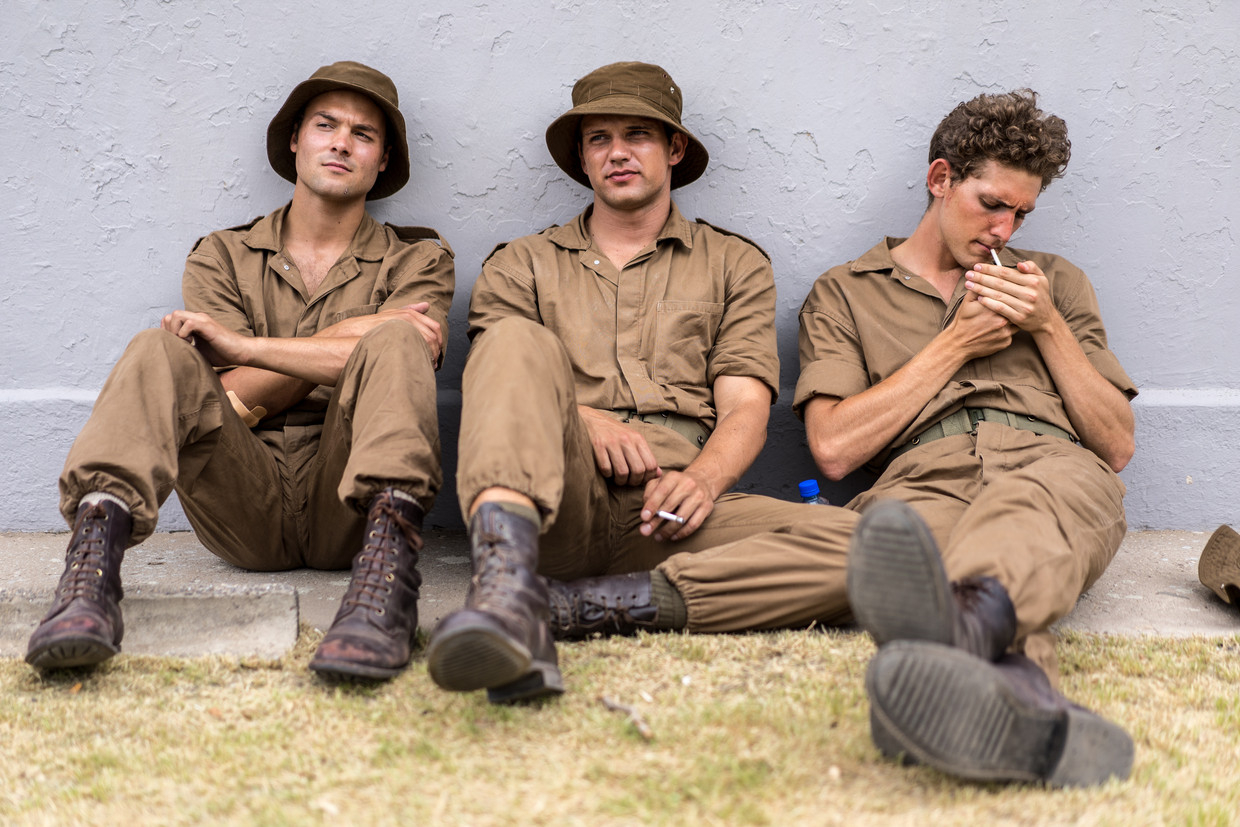In recent years a great number of movies have come out in South Africa which have centred on the concept of masculinity and what it means to be a man in the still very macho and patriarchal South African society. For example, the captivating and mesmerizing movie The Wound (2017) by director John Trengove, starring Nakhane Mahlakahlaka, dealt with issues of tradition, modernity and masculinity. The movie Skoonheid (2011) narrated the secret double lives of gay men amidst staggering homophobia. Lastly, the Afrikaner musical film Kanarie (2018) by Christiaan Olwagen, similarly focused on a young man’s personal fight to find societal acceptance. Moffie is the latest movie in the gay coming of age genre, but like Kanarie it goes further than only exploring individual struggles with sexual identity in a chauvinistic and macho culture. It also delves into the collective trauma of a generation and a community which is usually seen and dismissed as 'the enemy'.
Moffie tells the story of a young Afrikaner man named Nicholas van der Swart who in 1981, as so many young white men of his generation, was conscripted into the national army of South Africa and sent off to fight communism on the border of Namibia and Angola. Veterans of this proxy Cold War conflict are often frustrated at the lack of interest and willingness in today’s post-apartheid South Africa to listen to their traumatic stories, and help them make sense of their role in South Africa’s past. The director Oliver Hermanus, a coloured South African man who spent his childhood in Cape Town under the oppressive apartheid regime, stated that in the process of making this movie, one of the obstacles for telling this story was the ‘perpetrators perspective’. As such it could be seen as an attempt to ‘humanise’ the white Afrikaner male. The movie indeed shows that the Afrikaners had become a people not only at war with the world, but also increasingly with itself. The generation of young men who were conscribed into the immensely traumatic and deadly Border War in Angola in the 1980s, were groomed, drilled and forced to fight for the ideals and political motives of their parents' and grandparents' generation who did not have to do the ‘dirty work’ themselves. Consequently, the state of emergency ignited the looming dissatisfaction with the apartheid state amongst white South African youth, and led to the rise of the so-called Voël Vry (outlawed) generation’s nationwide protests. The Afrikaner quest for self-preservation, for control and power, had resulted not only in the unimaginable atrocities committed against the black communities in South Africa, but also led them on a path of self-destruction and self-loathing. Told that they were enemies of the state and a shame to the Afrikaner people, white homosexual Afrikaner men could not be perceived other than as victims of the oppressive state. That the Border War serves as the backdrop for this gay coming of age story should therefore been seen not only as portraying the harsh historical reality of the violent last days of the apartheid state and the Cold War, but also as symbolic of the violent implosion of a society and a culture.
Hermanus’ choice to stick to the title Moffie, which is a derogatory Afrikaans term for gay men, was deliberate and meant to emphasise the power of words in shaming and alienating members in society. The discomfort which is felt when seeing or hearing the word, evokes us to think about the fact that even though apartheid officially ended more than 25 years ago, words like Moffie are still used to set people apart in today’s South Africa. The significance of this historical war drama lies in its search for the historical roots of the toxic levels of masculinity in present day South Africa, which continues to cripple the nation. As such, the movie shows the importance of studying the past in order to make sense of the present. Above all, the importance of this movie lies in the fact that it reminds us that the story of the past is endlessly more complex than we often want it to be. The film calls on us to re-examine this period of South African history, that many of us think we know so well, to fully appreciate and comprehend the depths and complexities of the people living through it.
Moffie (2019) | Director Oliver Hermanus | Watch the trailer here.
Dr. Anne Marieke van der Wal is Assistant Professor African History at Leiden University


